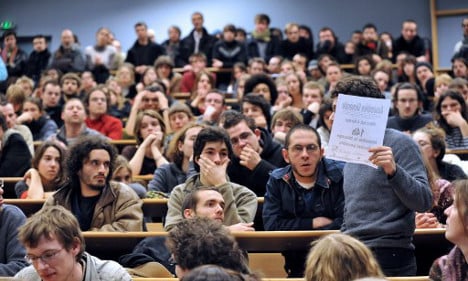


Some complained that the lack of student dormitories meant they were left with expensive rental costs, while others found the daily prices of things like food and cinema were too dear.
On campus, student reviews often cited a lack of organization in the university, a limited amount of courses offered in English, and few people that speak English.

Although France finished bottom of the pile for the fourth year running, it's only fair to point out that the overall satisfaction rating was 8.19, which by the terms of the ranking still classifies as “very good”.




 Please whitelist us to continue reading.
Please whitelist us to continue reading.
Member comments